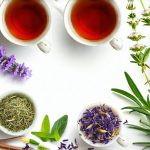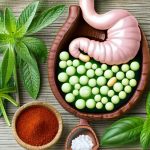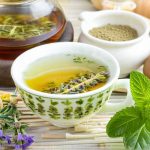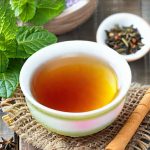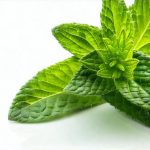Many of us experience digestive discomfort at some point – bloating, gas, indigestion, or irregularity. Often, simple lifestyle adjustments can make a significant difference, and one surprisingly effective adjustment is incorporating specific teas into your routine. For centuries, various cultures have utilized herbal remedies to soothe the gut, and tea offers a gentle, flavorful way to do just that. Choosing the right tea isn’t about finding a cure-all; it’s about selecting options known for their properties that support healthy digestion and alleviate common discomforts. This article will explore some of the best teas available for promoting digestive well-being, explaining how they work and offering guidance on which might be best suited to your needs.
Beyond just providing hydration, different teas offer unique compounds that can aid in various aspects of digestion. Some teas are known to calm inflammation within the gut, others stimulate digestive enzymes, and still others gently encourage bowel regularity. It’s important to remember that everyone responds differently to herbal remedies, so experimentation may be necessary to find what works best for you. This isn’t about replacing medical advice if you have a serious condition; it’s about leveraging natural options to support your overall digestive health.
Soothing Herbal Teas for Digestive Health
Herbal teas, or tisanes, are infusions made from dried herbs, spices, and other plant materials – technically not true “teas” like black, green, or white tea which come from the Camellia sinensis plant. However, for clarity, we’ll use the term ‘tea’ throughout this article to encompass all options. When selecting herbal teas, prioritize organic sources whenever possible to minimize exposure to pesticides and ensure quality. Peppermint and chamomile are often the first choices people think of for digestive relief, and rightfully so. They’re readily available, affordable, and have a long history of use. However, there’s a wider range of options that can provide targeted support based on your specific needs.
Ginger tea is another excellent choice. It contains gingerol, a bioactive compound with potent anti-inflammatory properties. This can help reduce nausea, bloating, and gas. Licorice root tea has been traditionally used to soothe the stomach lining and address issues like acid reflux, though it should be consumed in moderation due to potential effects on blood pressure. Fennel tea is particularly beneficial for reducing bloating and gas, often recommended after meals. These teas don’t just mask symptoms; they actively support healthy digestive processes.
The Role of True Teas (Camellia sinensis)
While herbal teas take center stage when discussing digestion, true teas – black, green, white, and oolong – can also play a supportive role, albeit in slightly different ways. Green tea, for example, contains polyphenols that may have prebiotic effects, nourishing beneficial gut bacteria. Black tea, while sometimes causing discomfort for those with sensitive stomachs due to its caffeine content, can stimulate digestion for others. Oolong falls somewhere in between, offering a milder effect than black tea but still providing some digestive stimulation.
The key difference lies in the fermentation process and caffeine levels. More fermented teas (like black tea) generally have a stronger impact on digestion, while less fermented teas (like green or white tea) are gentler. It’s also crucial to consider your individual tolerance for caffeine, as excessive caffeine can sometimes exacerbate digestive issues like diarrhea or anxiety which can indirectly affect gut health. Experimenting with different true teas and observing your body’s response is essential.
Teas for Specific Digestive Issues
Different digestive complaints require different approaches. For instance, if you struggle with bloating and gas, fennel tea, peppermint tea, or chamomile tea are excellent starting points. Peppermint relaxes the intestinal muscles, allowing gases to pass more easily, while fennel specifically targets gas production. Chamomile offers a calming effect that can reduce overall gut inflammation contributing to bloating.
For individuals dealing with constipation, senna leaf tea or dandelion root tea can be helpful. Senna is a natural laxative and should only be used occasionally as prolonged use can lead to dependency. Dandelion root stimulates bile production, which aids in the breakdown of fats and promotes bowel regularity. If you experience frequent heartburn or acid reflux, licorice root tea (in moderation) or ginger tea may provide relief by soothing the stomach lining and reducing acidity. Remember that these are supportive measures; persistent digestive issues should be investigated further with a healthcare professional.
Probiotic & Prebiotic Teas
The gut microbiome – the community of bacteria living in your intestines – plays a vital role in digestion and overall health. Certain teas can support this delicate ecosystem. Kombucha, technically fermented tea, is brimming with probiotics, live microorganisms that benefit gut health. While not a traditional “tea” in the sense of an infusion, its probiotic content makes it a valuable addition to a digestive-focused routine.
Beyond kombucha, green tea contains polyphenols which act as prebiotics, feeding beneficial bacteria and encouraging their growth. This fosters a healthier gut environment which improves digestion, nutrient absorption, and even immune function. By supporting the microbiome, these teas contribute to long-term digestive wellness rather than just providing temporary symptom relief.
Ultimately, finding the best teas for your digestion is a personal journey. Pay attention to how different teas make you feel, adjust quantities as needed, and incorporate them into a holistic approach that includes a balanced diet, regular exercise, and stress management.


